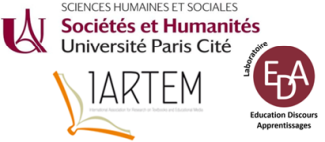As every textbook, the suggestopedic Climate change textbook is a tool that supports the educational process. The new in this type of textbook is that is created according to the principles of the suggestopedic educational method. The approach was based on the power of suggestion in learning, the notion being that positive suggestion would make the learner more receptive and, in turn, stimulate leaning. Prof. Lozanov holds that a relaxed but focused state is the optimum state for learning. In order to create this relaxed state in the learner and to promote positive suggestion, suggrstopedia makes use music, a comfortable and relaxing environment, and a relationship between theteacger and the student that is akin to parent-child relationship. Music, in particular, is central to the approach. In this method the textbook has a crucial role, more so that in the traditional educational setting, in two aspects: its required use in the educational process and its increased volume of content compared to the traditional textbook. The suggestopedic textbook is structured in several large informational blocks, that are being read during a (the reading of new materials accompanied by classical music in a comfortable and relaxing environment). Therefore, in the textbook, multilayred and multifunctioned, enriches the discource of textbook making it more communicative. Its purpose is, together with the other educational means, trained teacher, suggestopedic boards, games, ets., is to create an environment of interactive learning.
References:
1. Lozanov,G., Suggestopedia/Reservopedia, St. Kliment Ohridski University Press, S., 2009.
2. Lozanov, G., Suggestopedia-desuggestive training, St. Kliment Ohridski University Press, S., 2005.

 PDF version
PDF version
